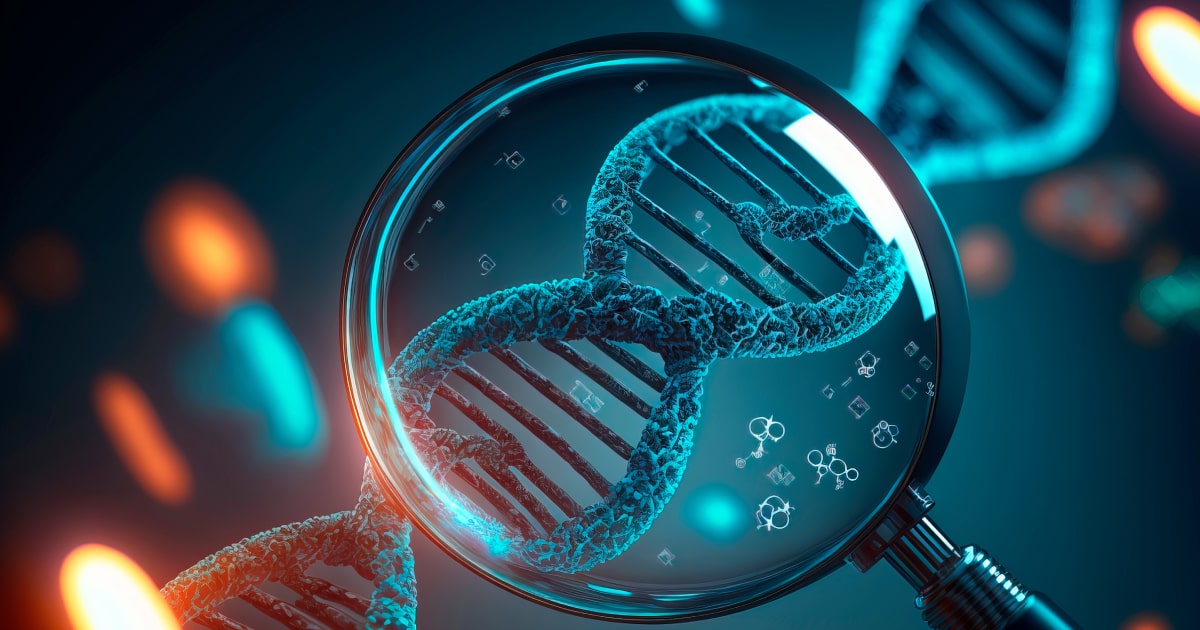
Expert Reviewed By: Dr. Brandon Colby MD
MYBPC3-related disorders are a group of genetic conditions that affect the heart muscle, leading to a variety of complications. Understanding, diagnosing, and utilizing genetic testing for these disorders is essential for proper management and treatment. In this article, we will delve into the complexities of MYBPC3-related disorders and explore the benefits of genetic testing for early detection and improved patient outcomes.
Understanding MYBPC3-Related Disorders
MYBPC3-related disorders are caused by mutations in the MYBPC3 gene, which is responsible for producing cardiac myosin-binding protein C, a crucial component of the heart muscle. These mutations lead to the production of an abnormal protein, resulting in impaired heart function. The most common MYBPC3-related disorder is hypertrophic cardiomyopathy (HCM), a condition characterized by the thickening of the heart muscle, making it harder for the heart to pump blood efficiently. Other MYBPC3-related disorders include dilated cardiomyopathy (DCM) and left ventricular noncompaction (LVNC).
Diagnosing MYBPC3-Related Disorders
Diagnosing MYBPC3-related disorders can be challenging due to the variability in symptoms and presentation. Some individuals may be asymptomatic, while others may experience symptoms such as chest pain, shortness of breath, fatigue, and heart palpitations. In some cases, the first sign of an MYBPC3-related disorder may be sudden cardiac death.
Diagnosis typically involves a thorough medical history, physical examination, and various tests to assess heart function. These tests may include electrocardiogram (ECG), echocardiogram, cardiac magnetic resonance imaging (MRI), and exercise stress testing. However, these tests may not always provide a definitive diagnosis, and genetic testing may be necessary to confirm the presence of an MYBPC3-related disorder.
The Role of Genetic Testing in MYBPC3-Related Disorders
Confirming Diagnosis
Genetic testing can play a crucial role in confirming the diagnosis of an MYBPC3-related disorder when standard diagnostic tests are inconclusive. By identifying the specific mutation in the MYBPC3 gene, healthcare providers can accurately diagnose the condition and develop an appropriate treatment plan.
Identifying At-Risk Family Members
MYBPC3-related disorders are inherited in an autosomal dominant manner, meaning that an affected individual has a 50% chance of passing the mutation to their children. Genetic testing can be used to identify at-risk family members who may also carry the mutation, allowing for early intervention and management of the condition.
Guiding Treatment and Management
Genetic testing can also help guide treatment and management decisions for individuals with MYBPC3-related disorders. For example, some MYBPC3 mutations are associated with a higher risk of sudden cardiac death, and individuals with these mutations may benefit from the implantation of a cardioverter-defibrillator (ICD) to prevent life-threatening heart rhythms. Additionally, genetic testing can help healthcare providers determine the most appropriate medications and lifestyle modifications for managing symptoms and reducing the risk of complications.
Prenatal and Preimplantation Genetic Testing
For couples with a known history of MYBPC3-related disorders, prenatal and preimplantation genetic testing can be used to assess the risk of passing the mutation to their children. Prenatal testing involves analyzing the DNA of the developing fetus, while preimplantation genetic testing is performed on embryos created through in vitro fertilization (IVF) before implantation. These tests can help couples make informed decisions about family planning and the management of potential MYBPC3-related disorders in their children.
Conclusion
Understanding, diagnosing, and using genetic testing for MYBPC3-related disorders is essential for improving patient outcomes and managing these complex conditions. By identifying the specific MYBPC3 mutation and its associated risks, healthcare providers can develop personalized treatment plans and monitor at-risk family members for early intervention. As our understanding of the genetics behind MYBPC3-related disorders continues to grow, so too will our ability to effectively diagnose, treat, and manage these conditions.
About The Expert Reviewer
Dr. Brandon Colby MD is a US physician specializing in the personalized prevention of disease through the use of genomic technologies. He’s an expert in genetic testing, genetic analysis, and precision medicine. Dr. Colby is also the Founder of and the author of Outsmart Your Genes.
Dr. Colby holds an MD from the Mount Sinai School of Medicine, an MBA from Stanford University’s Graduate School of Business, and a degree in Genetics with Honors from the University of Michigan. He is an Affiliate Specialist of the American College of Medical Genetics and Genomics (ACMG), an Associate of the American College of Preventive Medicine (ACPM), and a member of the National Society of Genetic Counselors (NSGC)